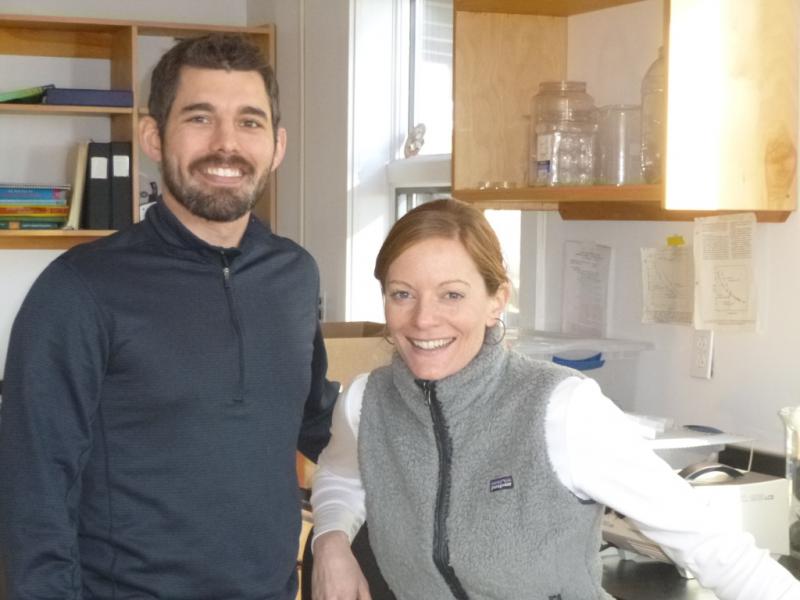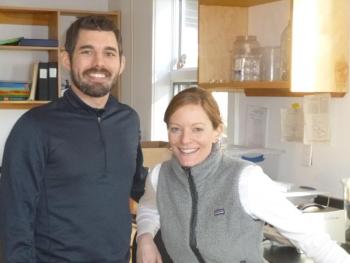New scientists at Darling Marine Center focus on marine ecosystems
Last summer’s crisis with the lobster fishery and the sudden appearance of squid on our coast were just two recent reminders that Maine’s coastal ocean ecosystems is changing. Some changes are obvious and some are subtle but to deal with them we must understand them better than we currently do. This week the University of Maine’s Darling Marine Center (DMC) welcomed two new research scientists, both from the Georgia Institute of Technology, who will focus on important bits of this puzzle.
Dr. Rachel Lasley-Rasher studies a potentially important missing link in the diet of Maine's groundfish. She focuses on tiny shrimp-like "mysids" that live on or near the sea floor. They are likely food for many of the animals that live in our coastal waters including alewives and herring, but scientists know very little about their role in coastal marine foodwebs. Because mysids are near the base of this foodweb, subtle changes in their behavior can have profound implications for forage fish that depend on them. Her research will combine field and laboratory studies primarily at and around the DMC, but also at Bigelow Laboratory for Ocean Sciences.
Also joining the Darling Marine Center team of scientists is Dr. Doug Rasher. His past research uncovered a new type of chemical warfare that exists between seaweed and corals in tropical coral reefs. He also identified several species of seaweed-eating fish that remove the toxic seaweeds from reefs. In Maine he will be studying how ocean acidification affects coastal marine ecosystems and commercially important species such as the green sea urchin.
Located in Walpole, the Darling Marine Center is the marine laboratory for the University of Maine. The DMC is research and educational facility serving the marine interests of UMaine faculty, staff and students, as well as visiting investigators from around the world. Learn more at www.dmc.maine.edu/.
Event Date
Address
United States
























